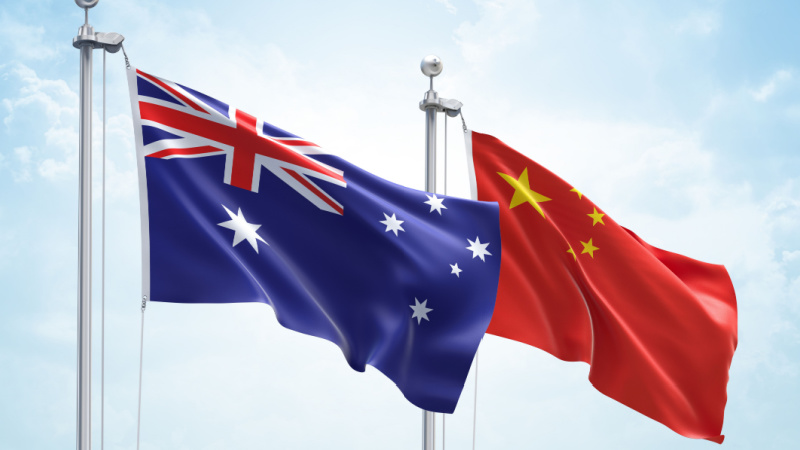Australia must avoid knee-jerk policy reactions regarding China
April 16 2023

Note: This article appeared in The Australian on April 16 2023.
The visit to Australia last week by Chinese Deputy Foreign Minister Ma Zhaoxu confirms that official relations between Canberra and Beijing are back on track.
Ma’s big message?
‘China is ready to move forward’ from the dysfunction of recent years.
Political leaders and officials are now discussing the full range of issues, including contentious ones like strategic competition, human rights and the Australians that remained detained in China, Yang Hengjun and Cheng Lei.
And there’s more to be upbeat about than Canberra and Beijing returning to constructive dialogue. Last week, the Australian Bureau of Statistics released new numbers showing that over the past 12 months China snapped up Australian goods worth $179bn, a new record.
Add in another $10bn or so from services like education and tourism, which are now getting a fresh boost after China reopened its borders earlier this year.
Australia’s appetite for imported goods from China is bouncing off historical highs, too, at $111bn.
This success isn’t much thanks to Beijing.
Political ups and downs have been a constant since diplomatic relations were struck in 1972.
But in 2020 it was Beijing that broke a longstanding tacit agreement not to respond to political disagreements by disrupting mutually beneficial trade.
Instead, success owes most to the thousands of Australian and Chinese businesses that navigated the geopolitical challenges to not only preserve, but expand, the value that the bilateral relationship delivers.
And give Canberra some credit, too.
There was a lot to criticise in the Morrison’s government’s handling of China relations.
But in September 2021, more than a year after Beijing decided to close its market to a range of Australian exports, treasurer John Frydenberg still took the view that ongoing engagement by businesses had ‘brought great benefits to them and to Australia overall’. He recommended that ‘they should continue to pursue these opportunities where they can’, albeit with eyes wide open to risk.
A month before losing office, Morrison himself insisted that ‘ongoing engagement between private industry and business with markets like China is very important and I will continue to encourage that’.
The Albanese government has stuck to the same script.
Addressing the Australia-China Business Council last September, Assistant Minister for Foreign Affairs Tim Watts said that commercial relationships were regarded as ‘complementary’ to the government’s efforts to stabilise the broader relationship, and he encouraged those in the audience to ‘stay engaged in the China market, while accounting for risk’.
This month, Trade Minister Don Farrell made clear that Canberra’s idea of trade diversification was not about reducing the importance of China. It meant ‘getting back into China, but also opening up with India, the United Kingdom, with the European Union’.
None of this good sense was preordained or can be taken for granted in the future.
Canberra can expect pressure from Washington to follow it down the path of trying to contain China’s rise.
Last October, the Biden administration cut off China’s access to advanced semiconductors in a move that Farrell described as ‘draconian’.
Presidents Biden and Trump have upped the ante, but US efforts to recruit allies and partners to its cause are nothing new. In 2015, it was President Obama who asked Prime Minister Tony Abbott to stop selling iron ore to China.
Abbott declined.
But these days Australia’s very own coterie of ‘‘little Americans’’ are on board.
Earlier this year, former head of the Australian Strategic Policy Institute, Peter Jennings, insisted that ‘the government should be advancing every possible measure to reduce economic dependence on China’.
What dependence would that be?
When Beijing disrupted access to its market, many Australian businesses shrugged their shoulders – disappointed, but hardly panicked.
Coal, cotton, copper and more are traded in open and competitive global markets. So, when Beijing closed the door, these markets simply re-directed Australia’s exports elsewhere, almost overnight and at low cost.
These markets are underpinned by international trade rules. Last week also saw Beijing change course on the tariffs it imposed on Australian barley, knowing that the World Trade Organisation would soon adjudicate its actions to be inconsistent with these rules.
There have been calls as well for Australian trade policy to embrace concepts like ‘trusted trade’. This takes forms such as ‘friend-shored’ supply chains. The idea is superficially appealing – if governments can drive more trade to our strategic mates, then geopolitical risk can be reduced.
But businesses have already shown that they can effectively manage geopolitical risk, certainly better than bureaucrats ever could.
And our strategic mates often don’t want what we sell. In 2014, US Secretary of State, Hillary Clinton warned Australia not to put all its eggs in the China basket.
Malcolm Turnbull quipped in response: ‘I’m sure that we’d love to export vast quantities of iron ore to the United States but they’ve never shown any enthusiasm in buying them.’
When China stopped buying some of our goods a few years ago, our strategic mates didn’t come to the rescue. In fact, the country that snapped up the most lost Australian sales to China was the US.
Canada and New Zealand were also leading beneficiaries. No surprise: yes, they are strategic mates, but also commercial rivals.
Touted increased purchases driven by ‘‘shared values’’, like Australian ‘democracy wine’, didn’t materialise either.
China took a witless policy turn in 2020. Australia can do better than respond with a witless policy turn of our own now.
Professor James Laurenceson is Director of the Australia-China Relations Institute at the University of Technology Sydney.

